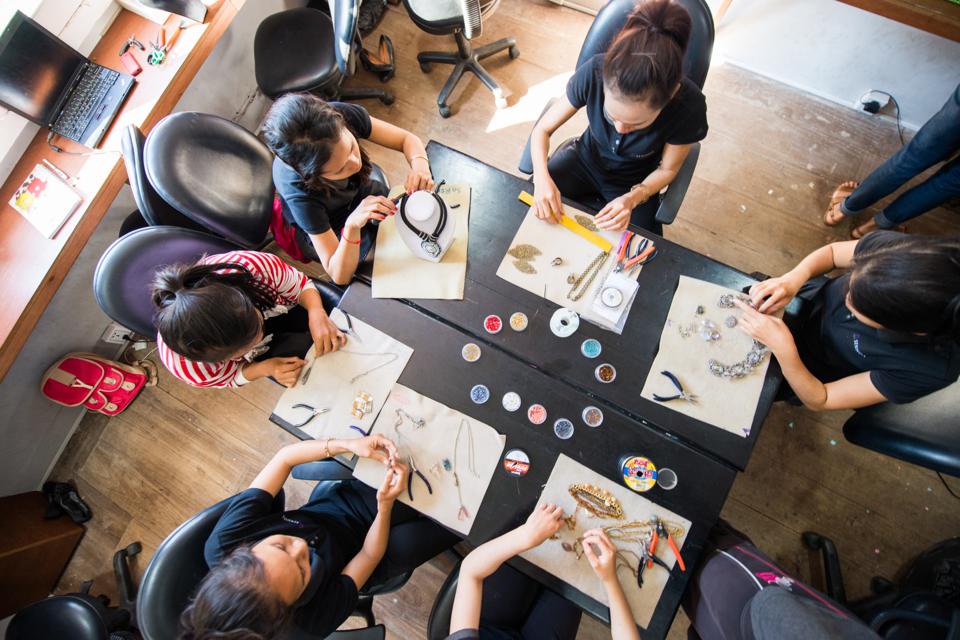An Australian ethical marketplace is shining light on the cost of slave labour, telling the story of the people that make products and giving consumers a chance to make a difference with their purchasing habits.
Every product sold on the Temples & Markets marketplace tells the human story behind its production, including the factory where the items were produced and the people behind their creation, giving shoppers full transparency around the social impacts of the products they’re buying.
It was 25 years ago in her travels through Asia that Judith Treanor, founder of Temples & Markets grew increasingly concerned about the social and environmental toll of fast fashion. Now, the young entrepreneur is on a mission to empower consumers to make a difference through their purchasing decisions.
Seeing the first-hand impacts of mass production inspired Ms Treanor to launch a marketplace which gives the power back to niche, bespoke local producers, sourcing products solely from social enterprises in South East Asia.
With Facebook groups like Afterpay Obsession and Kmart mums, many artisans and local social enterprises are suffering because people want things for super cheap and super-fast, Ms Treanor says.
“Mass produced goods rule the market. I see daily posts on Facebook from very clever people who are making beautiful products being criticised because their items are too expensive. Things like beautifully hand knitted blankets for beds, or professionally made wedding cakes that would have taken hours to make,” she said.
“Yet people only want to pay as little as they can for these products. I think people have no idea how much time and effort goes into making something from scratch that doesn’t involve an extrusion machine or a production line.”
Temples & Markets aims to change all of this by giving shoppers a chance to give back by shopping. With a recent Oxfam report revealing that 77 per cent of retail workers in Vietnam couldn’t meet ends meet, Ms Treanor says more and more consumers are becoming conscious of the impacts of their purchasing decisions.
“That is resonating with more and more people but I’m seeing gap is becoming bigger and bigger, the ethical shopping movement is growing but unfortunately the other side is growing as well,” she says.
“But people really do want nice things and I wanted to expose people here to wide market. So many have been brainwashed into thinking cheap is better. As consumers, we are our own worst enemy.”
By telling the story behind products, Ms Treanor hopes to engage with consumers on a human level, inspiring them to purchase goods which benefit others as well.
“The market tells the story behind products and people who make them giving them more face to world of e-commerce,” she says.
But the journey doesn’t end here for Ms Treanor, who will later this year be launching ethical shopping tours, which gives shoppers the opportunity to go on workshops and meet the people making the products they’re buying.
“I’m planning on starting ethical shopping tours in the region, hopefully later this year. So taking people to workshops and letting them meet the makers and hear their stories,” she says.

